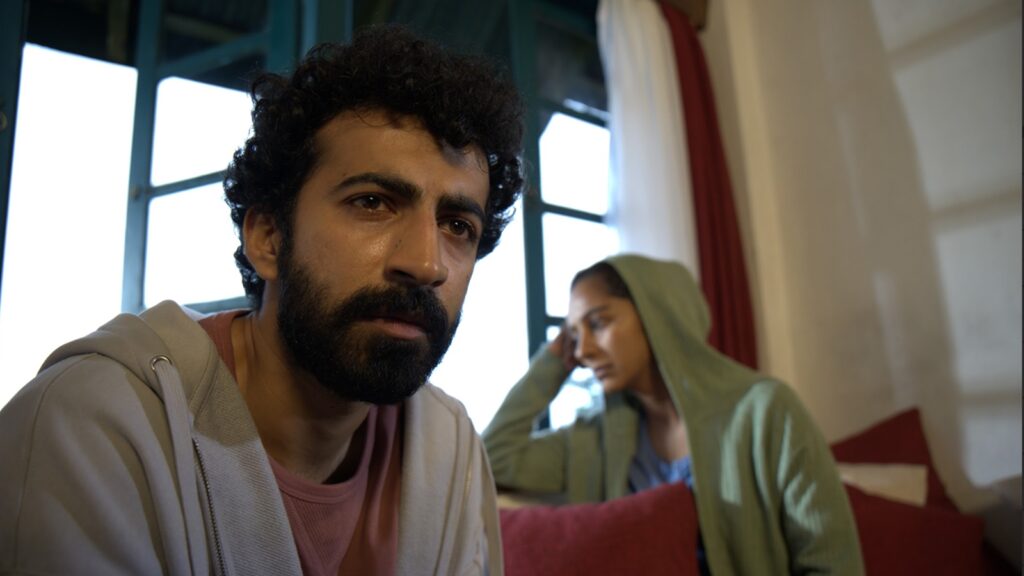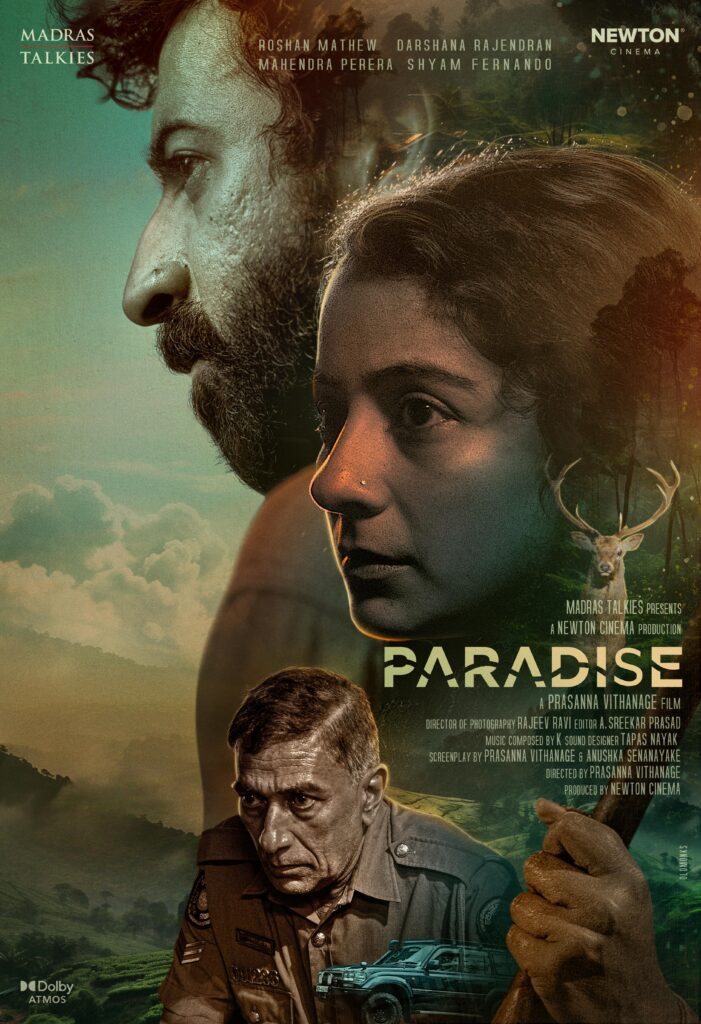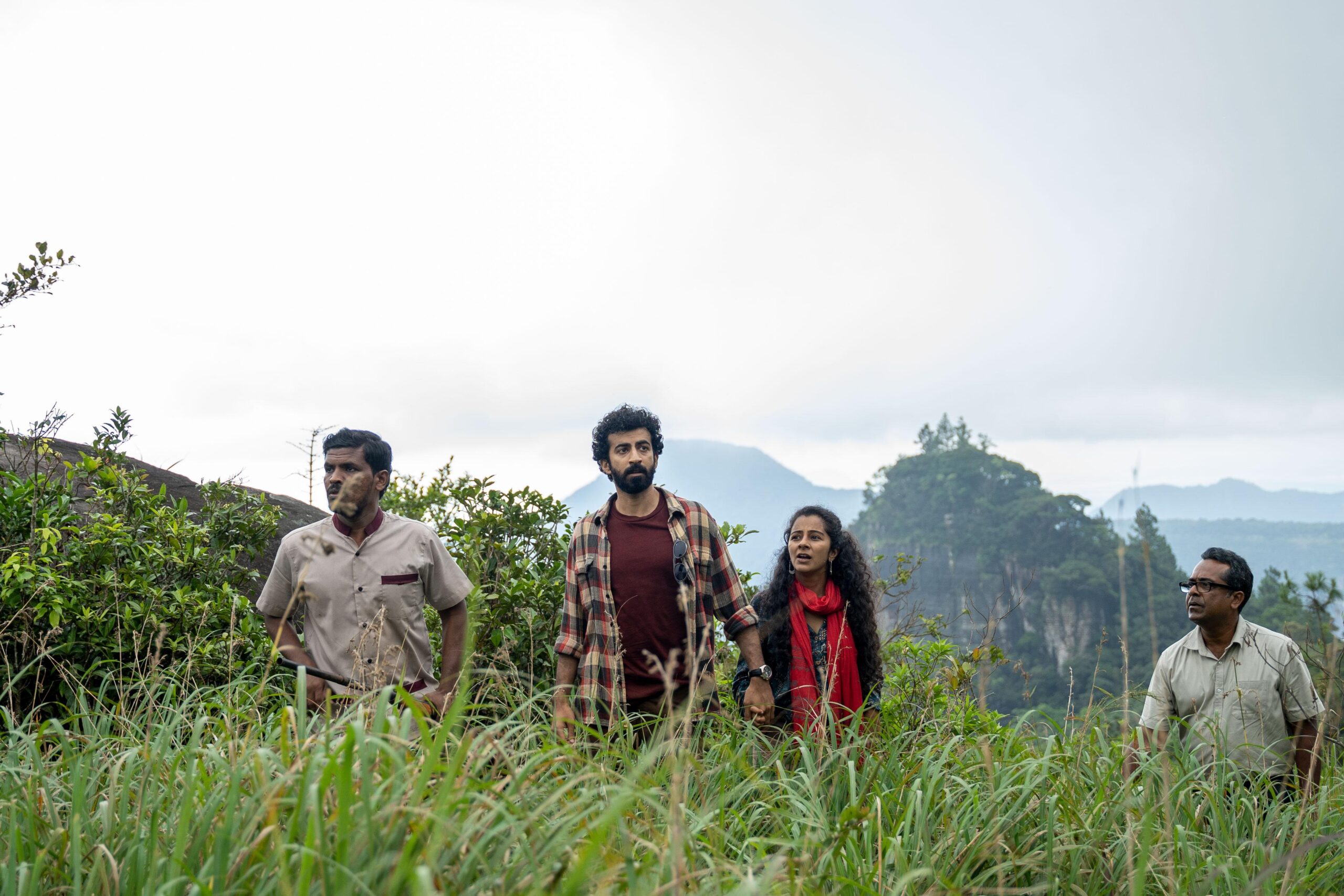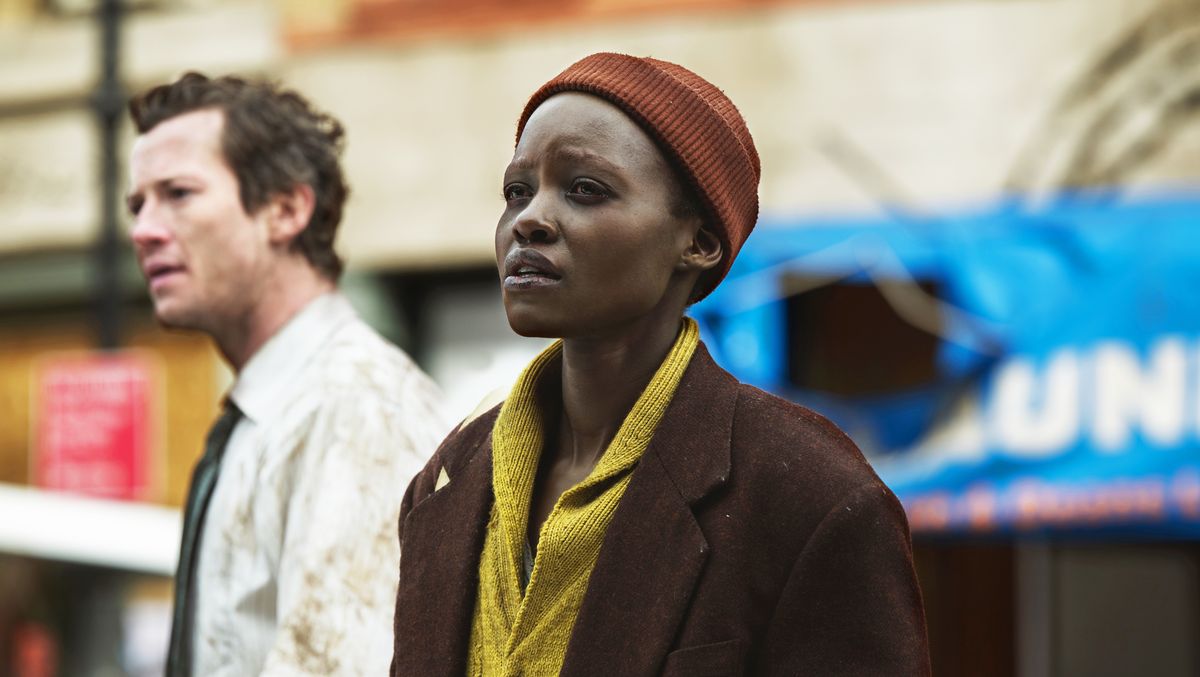Several films have explored the premise of a married couple vacationing in a region far from the relentless pace of their urban lives. While they enjoy this temporary moment of happiness and relaxation, their relationship is re-evaluated. The trip becomes a crucible in which their connection is tested, ultimately either strengthening their bond or widening the rift between them. The result depends on their ability to confront the issue front-to-front or let their ego take over their sense of understanding. Veteran Sri Lankan filmmaker Prasanna Vithanage‘s Paradise treads a similar path with a tale of marital drama filled with an immaculately pensive and understated story about the emotional distance between people often created by our unrestricted behavior. It delves into the deep-seated prejudices that hinder our relationships. Unfolding over a few days, it is a philosophical, minimalist work about desolation and loss that is both riveting and profoundly honest. Avoiding familiar tropes of melodramatic conventions, Vithanage is keenly interested in peeling back the layers of human conscience and examining its relationship with society. This microscopic examination reveals the insecurities underneath resentment, insecurity, guilt, grief, and professional frustration. The characters find themselves in difficult situations, only to discover that the choices they once avoided now leave them with no freedom of choice.
The film is set in 2022, a period of political upheaval, as Sri Lanka is going through a political crisis due to bankruptcy. The citizens want the resignation of their president, Gotabaya Rajapaksha and as a result, there are protests across the country. Kesav (Roshan Mathew), a budding filmmaker, finds it the right time to visit the country because it is cost-effective. So, along with his wife Amritha (Darshana Rajendran), a blogger and aspiring novelist, he has planned a tour to celebrate their fifth anniversary. On his way to their lodging, he strikes up a deal with Netflix. Their guide for the tour, Andrew, drives them to a bungalow situated atop a hill amidst a dense, green forest. Shree (Sumith Ilango) is the caretaker and Iqbal (Isham Samzudeen) is the cook. After a night of brief celebration, the husband and wife resign to their bed and make love. Later in the night, they are held at knife-point by assailants who flee after robbing the laptop and mobile phones of the defenseless couple. The next morning, Kesav insists on lodging a report with the police. Andrew drives Kesav and Amritha to the police station, and a reluctant officer, Sgt. Bandara lodges a complaint. He brings three Tamilians from the village as suspects. Amritha is unsure if they were the culprits, but Kesav confirms. Bandara takes them into custody and brutally interrogates them. One of them collapses and is rushed to the nearby hospital.

The narrative maintains a delicate balance between pleasure, sadness, mystery, and ruthlessness. Though it falters at times, it never loses control or descends into chaos. There is a mellow touch with which Vithanage stirs up a brooding, disquieting and unsettling mood. An underlying touch of calmness, even in the most agitation-ridden situations, renders them all the more eerie. The film constantly refers to the epic Ramayana and parallels Lord Rama and Sita with Kesav and Amritha. To satiate his hunger for venison, Andrews takes the couple to hunt. As Shree aims his rifle at a sambar deer, Amritha screams before the trigger is pressed. She is enamored by the beauty of the animal, akin to Sita’s attraction to the golden deer. Unlike Lord Rama who did not trust the chastity of Sita, due to her abduction by Ravana, Keshav does not believe that Amritha closed the window at night which resulted in the assailants sneaking into their room. The chaos that ensues in their life after they lose their laptops and cell phones is nothing less than an Agnipariksha (trial by fire). Though in the epic, Sita was helpless and had to comply. But Amritha is a modern-day woman who is aware that Ramayana has 300 versions and in the Jain iteration Sita fought Ravana face to face and Rama was the charioteer. As the film ends, her action, though accidental, implies that in contemporary society, Sita does not always have not always has to endure suffering or punishment. In the beginning, Andrews comes up with an idealistic theory that Ravana is in slumber and will wake up one day to save his country from distress. His belief appears like a pacification that works like a soothing balm to console the citizens suffering from the government’s failures. It also becomes evident in one of the scenes when Amrita curtly asks Bandara if human life has any value. The befuddled officer replies acridly that people are valued only during the election to collect votes.
When a nation suffers from the incompetence of those at the upper echelons of power, anger amongst the citizens trickles down the society through a domino effect. The act of robbing itself involves considering a range of factors including social, economic, and individual motivations. When Bandara is unwilling to search for the stolen gadgets, Keshav threatens him that he will be complaining to the Indian High Commission. Out of compulsion, he arrests three Tamilians randomly and one of them suffers a fatal injury during the harsh process of interrogation. The incident naturally erupts into a serious issue that deleteriously engulfs everyone in its grasp. There is a scarcity of diesel in the country and the poor suffer the most. The injured boy could not be taken to the hospital in a police vehicle as it ran out of fuel midway. When he was getting treated the lights went off and the generation was out of order due to lack of diesel. So, under such a deterring situation does Keshav’s lost stuff matter anymore? The film implores such pertinent issues and organically infuses them into the narrative with precision. How a political issue can result in personal chaos is constantly probed throughout the film without fuzziness. It reflects a universe where all the characters contribute—as victims or offenders—to the cycle of violence, without being aware. Through feelings of pride, fear, and guilt, the characters explore the unconscious implications of this reality. Despite such intriguing moments and impressions, the film fails to pull together by the time it ends. The climax does not deliver the gratified flourish that was expected. Towards the climax, Keshav and Amrita take a drastic step that will ultimately change their life forever. It takes away from the gravitas that the film had built up until that point. The final moments of the film are built on suspense and tension. But the resolution appears to be an easy recourse that does not align with our suspension of disbelief. It loses us a bit in the process.

Kesav has a cool, vibrant and polite charm at the beginning. But when he loses his electronic devices, he transforms into a cold, emotionless self-centered snob who always wants to appear in control. Roshan Mathew brings a delicate and distinctive balance to this duality. In contrast, Darshana Rajendran’s Amritha is pensive, settled, and easygoing. As the events around her cautiously build pressure, she reaches her emotional tipping point with touching resonance. Her expressions in the final shot have a haunting quality, offering a deceptively simple yet richly disorienting glance into an uncertain future. Mahendra Perera, as Sergeant Bandara, is a law enforcer who exerts authority on those who do not have much agency in society and prefers to serve those who are entitled. Perera brings a blunt and unsubtle approach to his character. Shyam Fernando as Andrew, is a silent observer of behaviors around him and tends to be a people pleaser. Sumith Ilango as Shree is a nondescript caretaker from the village who diligently takes care of his guests. He instinctively retorts when subjected to brutality.
Rajeev Ravi‘s command over the frames as a cinematographer, establishes itself most notably in his preference for very long, often static takes, allowing the actors to display a remarkable range of emotions and responses. Every subtle nuance of expression conveys meaning. Sreekar Prasad juxtaposes the scenes precisely to allow every frame to unravel the story with a keen sense of rhythm and pace. The sound design by Tapas Nayak balances the ambiance with multiple layers and aural motifs, to create a feeling of entrapment within an unpredictable environment. The background score by K (K Krishna Kumar) brings harmony to the film with a soothing effect. It keeps a perfect pace and adds to the changing ambiance and the flow of visuals.
Paradise offers a compelling viewing experience. The credit lies with Vithanage and his co-writer, Anushka Senanayake, for their decision to keep the screenplay free from extraneous plots. They choose perfectly timed moments to reveal the conflicts and dynamics among the characters, all while maintaining a layer of ambiguity. It’s a contemplative approach that imbues the film with a touch of stark realism and implies that if paradise can be found on earth, it certainly comes at a price.
Paradise has won the Kim Ji Seok Award at the Busan International Film Festival 2023 and the Audience Award at the Las Palmas Film Festival 2024, among others. It is playing in selected theaters around the world.



